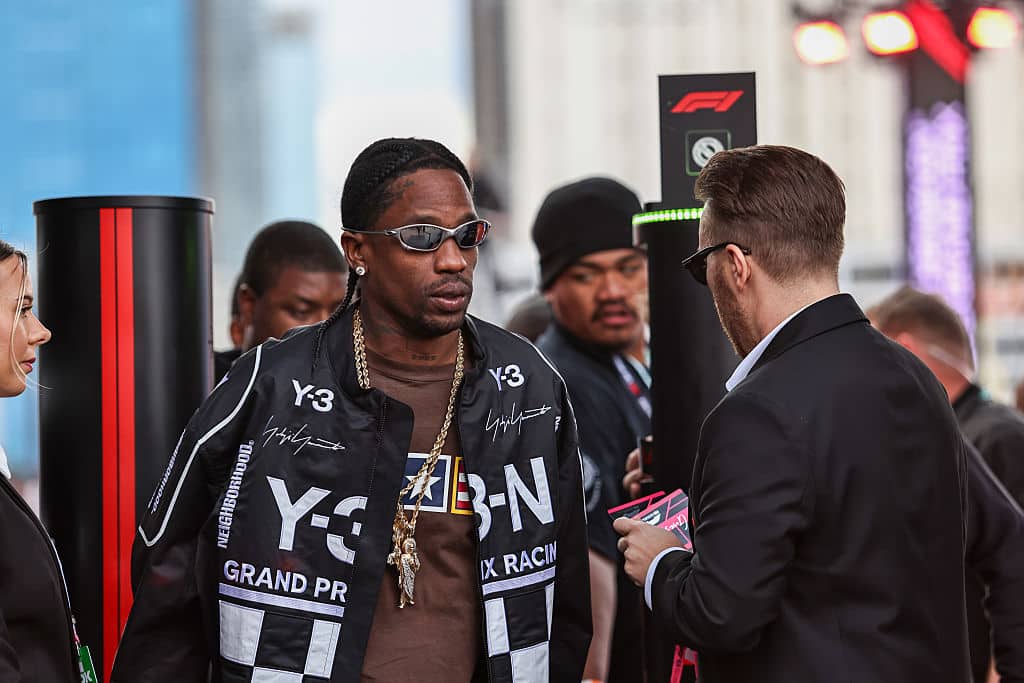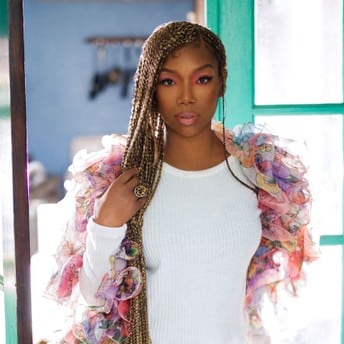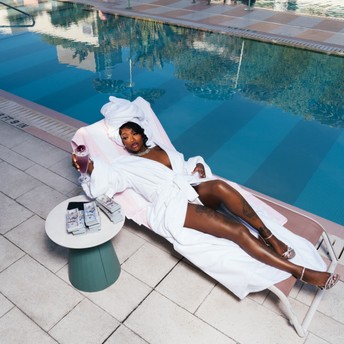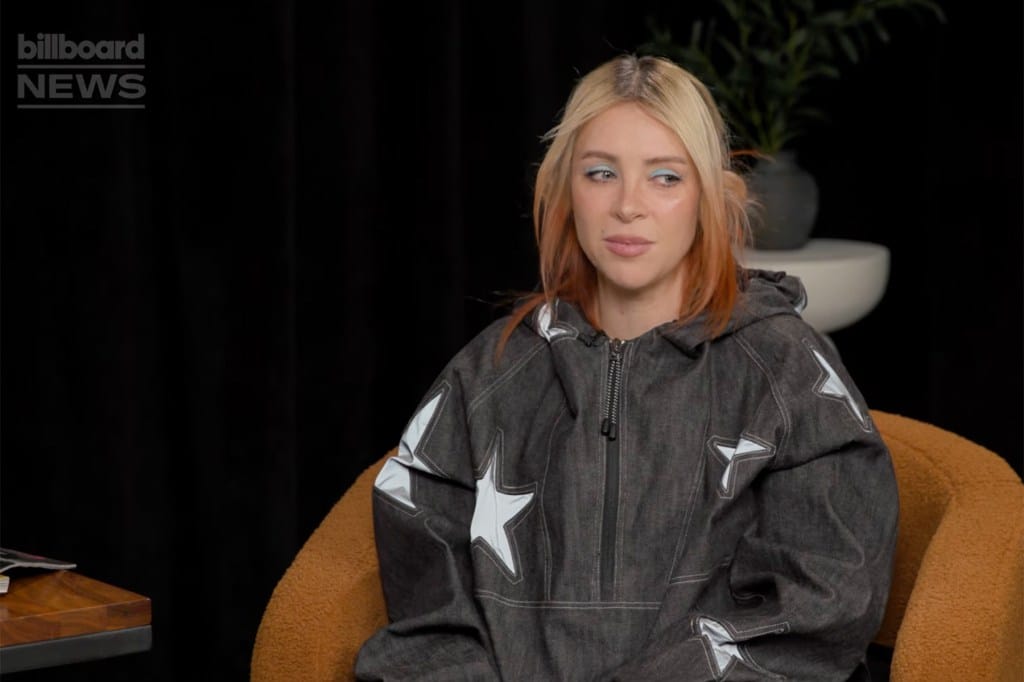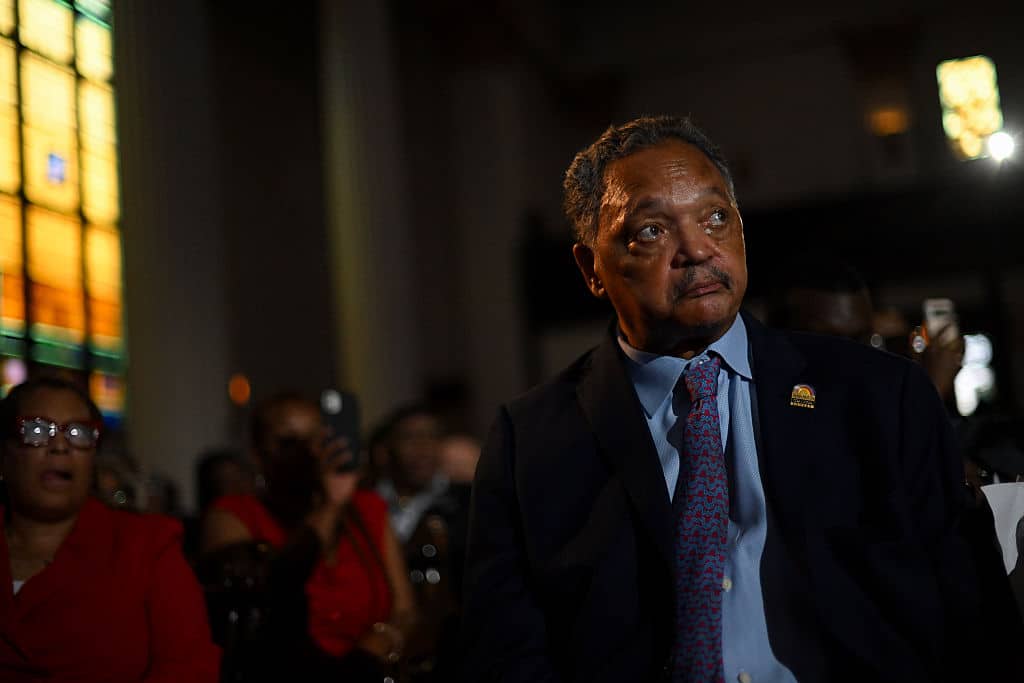Blog
Page: 27
Source: NurPhoto / Getty
Travis Scott has made history with his latest Circus Maximus Tour, bringing in over $265 million.
According to Billboard, this officially makes him the highest-grossing solo rap tour of all time. La Flame sold over 2 million tickets across a world tour that hit 20 countries and six continents. It also marked his major comeback following the 2021 Astroworld tragedy in Houston.
The show left ten concertgoers dead and raised questions about the safety at these big shows.
Two years later, Travis returned to the road after the strong reception to his fourth studio album, UTOPIA, which featured 21 Savage, Drake, Playboi Carti, and more. Standout tracks included MELTDOWN, FE!N, and TOPIA TWINS. The Circus Maximus Tour was crafted to be something special, and it delivered.
After announcing the tour, there was another huge announcement. Trav was bringing the show to Egypt and performing UTOPIA in front of the pyramids. This instantly had fans ready to book their travel to Cairo. Soon after the announcement, the Egyptian government chose to decline his request due to “complex production issues.”
Now the Circus Maximus tour has gone down in history.
Since then, the Houston rapper linked up with his collective and dropped a Jackboys 2. Dropping the same day Pusha T & Malice made a comeback as Clipse to drop their album, Let God Sort Em Out. Although the Jackboys project was overshadowed, Don Toliver, SoFaygo, and Sheck Wes still had their moments to prove they’re the next group up.
Trending on Billboard
In 2007, Neumos co-owner Steven Severin was determined to keep a rabid bunch of dance fans from tearing down the Seattle venue. Capitol Hill Block Party — the annual three-day festival that takes over the neighborhood — had booked Girl Talk before he blew up on the dance scene, and now the 650-capacity Neumos, which was hosting the performance, was facing an overcrowded show with headliner-sized demand.
“People are outside trying to rip the doors off. We’ve got bicycle barricades pushing people so that they can’t get in,” Severin recalls. “I am standing on the bicycle barricades screaming at everybody to get the f–k away from the building, like, ‘Back off! Nobody’s getting in.’”
Related
At the time, Severin was only a few years into co-owning Neumos alongside Mike Meckling, current managing owner Jason Lajeunesse and Jerry Everard, who also owns the property and founded the club, originally known as Moe’s Mo’Roc’N Café, in 1992. Seattle entrepreneur Marcus Charles was brought in early on but sold his share of the business to Severin, Meckling and Lajeunesse in 2003, when the venue took on the name Neumos (pronounced New Mo’s).
Despite weighing in at “a buck 65,” as Severin puts it, he was trying to dissuade the thousands of festivalgoers from damaging the then-15-year-old club, only to find the venue’s wall of security guards laughing at him. “They’re laughing because they know if one of these people comes over and pushes me, I’m gonna fall over,” he jokes.
The show went on without issue, but it was not the first or the last time a sold-out performance threatened the venue. Later that same year, Neumos hosted a now-legendary show — the kind everyone in the city recalls attending despite the venue’s minimal capacity — that boasted a stacked lineup of Justice, Diplo and Simian Mobile Disco. The rectangular room was filled to the brim with sweating fans (“It was like an earthquake went off in that place,” according to Severin), and one of the only places from which the owners could get a view was the crow’s nest opposite the balcony, accessible only by ladder. While they were up there, Severin says he noticed the crow’s nest pulling away from the wall and threatening to collapse due to the energy of the jumping, dancing crowd below.
Related
“We’re like, this is going to fall down. It’s going to kill people. We’re going to get sued, and we are going to lose everything. We are done,” says Severin. “So, we tell [the crowd] to stop jumping. We didn’t get down out of the crow’s nest, because there’s nowhere to go.”
He adds, “The next day we came in and reinforced it so that a metric ton can be up there and it won’t fall down, and we built a spiral staircase [to get to it]. You ask people their favorite Neumos show, and a lot of times people will say that one.”
Despite Neumos’ momentary brush with catastrophe, it’s nonetheless that punk, home-of-grunge ethos that makes the storied venue a perfect fit for Seattle. Over more than 30 years, the venue — housed in the same building that once hosted an auto dealership called Hugh Baird, among other businesses — has hosted countless popular acts, including The Shins, The Yeah Yeah Yeahs, Iron & Wine, Ben Gibbard, Vampire Weekend, Feist, Cat Power, The Raconteurs, Rilo Kiley, Metric, Damian Marley, El P and Dizzee Rascal.
Neumos
Grace Lindsey
Sitting at the corner of 10th Avenue and East Pike Street, Neumos is an iconic sight in Seattle, with its black brick and painted murals of the famous faces who have graced the stage. The venue helped forge the Capitol Hill neighborhood into the cultural epicenter it is today by building community — not only at its concerts but also through an attached bar called Moe Bar, later renamed The Runaway.
“We did a whole remodel [of the bar] when we stepped in because it had been called the Bad Juju Lounge before and there really was some bad juju in there,” Severin says. The New Orleans-themed bar was transformed into a cocktail lounge with elevated style, complete with fun wallpaper and comfy booths. “[We] made it so it became a destination,” he adds.
Open seven nights a week, the 100-capacity Moe Bar packed its schedule with DJ sets, trivia nights and more. Consistent attendance there also helped Neumos, which benefitted from spillover from Moe patrons who decided to catch one of the venue’s shows on a whim, lured by the low ticket prices: $5 a ticket for a local act and $10 for a national one.
Related
“That made it so that we were able to get people to come and see some things that they might not have,” says Severin, adding that it also allowed the venue to host acts in “more styles of music, because people would just come and check it out.”
The venue thrived on its eclectic bookings, from hip-hop and punk to country and metal. Among other shows, it hosted Oasis’ first U.S. headlining gig and in 2009 welcomed a 19-era Adele. “She was so nervous and not wanting to go on stage,” Severin says. “Then she comes out and starts singing and everyone is like, ‘What the f–k?’ It was incredible.”
With genres and trends fluctuating in popularity over the three decades of Neumos’ existence, adaptability has been a key to its survival. The attached bar has changed names. In 2012, the owners renovated a below-ground storage space into the 200-capacity Barboza venue. And in 2017, Neumos’ owners updated the main venue with new state-of-the-art lighting and sound systems, and knocked out a wall to create more space at the balcony bar — which resulted in a telling discovery.
Related
“We did find $5,000 when we ripped [the wall] out. We rip it out and there’s all this f–king cash in small bundles,” Severin says, adding that the money was found behind a beer fridge where he assumes an employee was stashing stolen funds. “Everybody stole from us,” he continues. “I had to fire the same bartender twice.”
Three years after the nearly $1 million in renovations, Seattle was one of the first major cities to enact mass gathering bans as COVID-19 hit the U.S. Like everyone else, Severin believed the shutdown would be over a matter in a weeks. At the time, he got a call from Jim Brunberg, the owner of Portland venue Mississippi Studios, who was reaching out to entertainment and nightlife establishments — including those he regularly competed with for shows — in an effort to determine what everyone was going to do.
Steven Severin
Leigh Sims
After the call with Brunberg, Severin and his wife, Leigh Sims, worked with local businesses to create the Washington Nightlife Music Association (WANMA), which formed Keep Music Live Washington, a coalition that raised more than $1 million in relief funds to support struggling venues statewide with support from artists including Sir-Mix-A-Lot, Brandi Carlile, Macklemore, Kathleen Hanna, Guns N’ Roses’ Duff McKagan and Foo Fighters. But with rent, utilities and other expenses remaining due during the shutdown, Neumos and other independent venues still found themselves on the brink of permanent closure.
With so many venues in dire straits, Severin joined calls that eventually launched the National Independent Venue Association (NIVA), marking the first time venue owners across the nation came together to collectively fight for federal assistance. Severin took on a government advocacy role — something he had become accustomed to from working with King County officials on behalf of WANMA — and began to fight for what would later become the Shuttered Venue Operators Grant.
Related
“I spent the pandemic just working. While everybody was learning how to bake bread, I worked every day figuring out how we’re gonna get money to keep our doors open,” Severin says — though he admits there was a point when he believed Neumos would never open again. Then, on one of the NIVA calls, he says that Tom DeGeorge, the owner of Tampa venue Crowbar, “ talked about running through a brick wall for me. He doesn’t know me. We’ve been on a call like five times. He doesn’t know me. And I was like, ’I’m gonna do the same for you.’ Then I was like, ‘I’m gonna save Neumos because this guy wants to save Neumos.’”
By December 2020, NIVA had successfully lobbied the federal government to provide more than $16 billion in relief to independent venues, as well as promoters, theatrical producers, live performing arts organizations, museum operators, motion picture theater operators and talent representatives. According to NIVA data, the funding saved 90% of independent venues from shuttering for good.
Earlier this year, Severin and Sims were able to attend their first NIVA conference in Milwaukee while proudly wearing badges with the Neumos name. “People would walk up to my wife and be like, ‘Thank you for saving my business,’ and my wife would be looking around, like, ‘Who are you talking to?’” says Severin. “Festivals, promoters, music venues, theaters, museums, aquariums, agencies — all those people got money because of the work [NIVA] did. We saved the f–king live music industry.”
Trending on Billboard
Brandy earned the Vocal Bible nickname for a reason. Kehlani joined the latest episode of Big Boy’s Neighborhood where she sang the praises of Brandy, claiming that “The Boy Is Mine” singer should be on every artist’s R&B Mount Rushmore.
Explore
See latest videos, charts and news
Even as Kehlani has enjoyed plenty of success in her own right, the Oakland native doesn’t see Brandy as a peer since she’s one of the R&B artists who inspired her and paved the way.
“I don’t think I would ever call my greats my peers,” she said. “Would never call her a peer. We’ll always call her a mother. Would always call her in my Mount Rushmore of R&B. I think every R&B singer that you ask if you’re talking about vocal GOATs, they’re gonna say Brandy. I would never, respectfully, get into an argument about Brandy Norwood. I would never be explaining Brandy Norwood to anyone.”
Kehlani joined Brandy on stage as a surprise guest at the Los Angeles show on The Boy Is Mine Tour, where she gave Brandy her flowers, hailing her as the “greatest of all-time” and then performed her top 10 Billboard Hot 100 hit “Folded.”
“I’m just glad I got to give her her flowers,” she added. “Even if they had only brought me out to give her her flowers and say what I got to say, that would’ve been just as good as being able to sing my song. I also was really grateful to be there in Monica’s presence as well, and give her her flowers privately.”
Brandy and Monica reunited for the co-headlining The Boy Is Mine Tour, which kicked off in October and has North American dates left in Detroit, Washington, D.C., Atlanta, New Orleans, Houston, Tampa Bay, Miami and Jacksonville.
As for Kehlani, she’s preparing to drop off her anticipated album next spring. “I usually come in spring,” she said. “I’m a spring baby.” The 30-year-old is riding high off the success of “Folded,” which reached No. 7 on the Hot 100 and “Out the Window” (No. 63 Hot 100 peak).
Watch the full interview below. Talk about Brandy begins just shy of 27 minutes in.
Source: skynesher / Getty
Black Thanksgivings are always a vibe; the kind of holiday where the food, the people, and the energy all come together to create pure comedy and comfort. There’s the sound of laughter in the kitchen, the smell of something frying that probably shouldn’t be frying, and at least three people yelling at the TV during the football game. Somebody’s blasting old-school R&B, somebody else is asking who made the potato salad, and everybody’s plate looks like they’re trying to avoid cooking for the next three days. It’s warm, it’s loud, it’s chaotic, and it’s home.
What makes Black Thanksgiving memes and GIFs so funny is that no matter where you’re from, the traditions are basically identical. We all have that uncle who shows up late and still wants a to-go plate, that cousin who suddenly “don’t eat pork no more,” and that elder who turns the pre-meal prayer into a whole sermon. We joke about it every year, but we also know it’s precisely what makes the holiday feel right. Those shared experiences, the inside jokes that every Black family somehow has in common, make the internet feel like one big living room.
Then there are the reaction moments that only Black families truly understand. The way everyone freezes when someone mentions politics. The side-eyes exchanged when a new partner is introduced. The dramatic gasps when someone announces they’re trying a new mac and cheese recipe. Memes and GIFs capture this stuff so perfectly that you can’t help but laugh, because it’s literally your family on screen, even if the people look nothing like yours. They’re funny because they’re us – loud, loving, messy, and memorable.
So, before diving into the list of memes and GIFs that’ll have you crying with laughter, grab a plate, sit back, and get ready to relive every chaotic, heartwarming moment of Thanksgiving with a Black family… because if you know, you know!
1. Something Fathers Don’t Play About
Source:KingJosiah54
2. A Mix Of Shame & Confusion
Source:Phil_Lewis_
3. CP Time Forreal. Lol
Source:Phil_Lewis_
4. A Heavenly Nap On The Horizon
Source:Phil_Lewis_
5. Blowing Up The Spot
Source:TOOTTHEBARBER
6. We Have Chairs. Lol
Source:TreBanks
7. “Gotta Jet”
Source:MochaDropNIQ
8. So Accurate. Lmao
Source:l3sliee
9. Do We Have To?
Source:SCseminole99
10. PLOTTING HARD
Source:SCseminole99
11. Thanksgiving Clapbacks >
Source:cyiaray
12. Granny’s Still Got It!
Source:Essence
13. Myyy Dawg
Source:Girlzlovejordan
14. We ALL Know This One. Lol
Source:penspiffy
15. Give It A Break Already
Source:twerkuleez
16. REAL TEARS
Source:penspiffy
17. Servant Vibes. Lol
Source:Mike_SaysSo
18. Great Food, Even Better Tea
Source:Chmira_
Source: skynesher / Getty
Black Thanksgivings are always a vibe; the kind of holiday where the food, the people, and the energy all come together to create pure comedy and comfort. There’s the sound of laughter in the kitchen, the smell of something frying that probably shouldn’t be frying, and at least three people yelling at the TV during the football game. Somebody’s blasting old-school R&B, somebody else is asking who made the potato salad, and everybody’s plate looks like they’re trying to avoid cooking for the next three days. It’s warm, it’s loud, it’s chaotic, and it’s home.
What makes Black Thanksgiving memes and GIFs so funny is that no matter where you’re from, the traditions are basically identical. We all have that uncle who shows up late and still wants a to-go plate, that cousin who suddenly “don’t eat pork no more,” and that elder who turns the pre-meal prayer into a whole sermon. We joke about it every year, but we also know it’s precisely what makes the holiday feel right. Those shared experiences, the inside jokes that every Black family somehow has in common, make the internet feel like one big living room.
Then there are the reaction moments that only Black families truly understand. The way everyone freezes when someone mentions politics. The side-eyes exchanged when a new partner is introduced. The dramatic gasps when someone announces they’re trying a new mac and cheese recipe. Memes and GIFs capture this stuff so perfectly that you can’t help but laugh, because it’s literally your family on screen, even if the people look nothing like yours. They’re funny because they’re us – loud, loving, messy, and memorable.
So, before diving into the list of memes and GIFs that’ll have you crying with laughter, grab a plate, sit back, and get ready to relive every chaotic, heartwarming moment of Thanksgiving with a Black family… because if you know, you know!
1. Something Fathers Don’t Play About
Source:KingJosiah54
2. A Mix Of Shame & Confusion
Source:Phil_Lewis_
3. CP Time Forreal. Lol
Source:Phil_Lewis_
4. A Heavenly Nap On The Horizon
Source:Phil_Lewis_
5. Blowing Up The Spot
Source:TOOTTHEBARBER
6. We Have Chairs. Lol
Source:TreBanks
7. “Gotta Jet”
Source:MochaDropNIQ
8. So Accurate. Lmao
Source:l3sliee
9. Do We Have To?
Source:SCseminole99
10. PLOTTING HARD
Source:SCseminole99
11. Thanksgiving Clapbacks >
Source:cyiaray
12. Granny’s Still Got It!
Source:Essence
13. Myyy Dawg
Source:Girlzlovejordan
14. We ALL Know This One. Lol
Source:penspiffy
15. Give It A Break Already
Source:twerkuleez
16. REAL TEARS
Source:penspiffy
17. Servant Vibes. Lol
Source:Mike_SaysSo
18. Great Food, Even Better Tea
Source:Chmira_
Trending on Billboard
It took four years following 2021 predecessor Sitll Over It, but R&B star Summer Walker‘s Finally Over It finally arrived two Fridays ago (Nov. 14).
The third and presumed installment in Walker’s highly acclaimed Over It album series debuts at No. 2 on the Billboard 200 albums chart this week, with 77,000 first-week units. The numbers mark the best debut for an album by a woman R&B artist in 2025 — defining such albums as those that are eligible for, or have charted on, Billboard’s Top R&B Albums chart — but are down from Still, which entered at No. 1 with 166,000 units in 2021.
Explore
See latest videos, charts and news
How do those numbers compare to our expectations? And does the album itself live up to the first two parts of the trilogy? Billboard staffers answer these questions and more below.
1. Summer Walker’s Finally Over It debuts at No. 2 this week with 77,000 equivalent album units. Are those numbers higher, lower, or about what you expected for it?Mackenzie Cummings-Grady: This is personally right in line with what I expected, and if No. 1 wasn’t T-Swift and it wasn’t the week before Thanksgiving, this number easily could have been higher. Considering it’s been four years since Summer’s last project, and the only hit single to hype up this album was “Heart of a Woman,” which is over a year old at this point, 77,000 just gets more impressive the more you realize it highlights how devoted Summer’s fanbase is at this point.
Kyle Denis: These numbers are certainly lower than I expected. Both Over It and Still Over It opened with over 130,000 album units, so to go from that to barely surpassing 75,000 — with nearly 20 songs, multiple deluxe editions and an overall buzzier collection of guest artists — is pretty disappointing.
Gail Mitchell: Given the debut numbers for Walker’s first two albums, Over It (134,000) and Still Over It (166,000), this new number is lower than I expected. However, four years have elapsed since her last album, with Finally Over It landing in a very different economic climate. Consumers deal with higher prices for food, healthcare and other essentials. Meaning that for some, purchases of concert/festival tickets, music and other discretionary items are lower priorities right now.
Michael Saponara: I’d say that number is slightly higher than I anticipated. Even though 77,000 is less than half of what Still Over It did in 2021, we’re just in a much different climate when it comes to album sales. Couple that with an extended rollout that didn’t include a hit single leading into the project released this year, and the sum makes sense.
Andrew Unterberger: It’s a little lower. The rollout was messy and the singles were poorly timed, but I thought the continued interest in Walker and affection for the Over It series was enough to transcend the promotional miscues — especially because I think the album itself is quite strong. But a lot of artists are pulling up a little short of expectations on streaming right now, and I suppose Walker is no exception.
2. Finally Over It arrives over a year after she initially announced the album, and almost exactly four years after she released its predecessor, Still Over It. Based on the early returns, would you say the protracted rollout helped its debut performance, hurt it, or had no major impact on it?Mackenzie Cummings-Grady: I think the tour with Chris Brown definitely helped keep Summer as a part of the conversation, even though the rollout didn’t really kick into high gear until maybe a month or two ago. I think if it had been any other R&B singer, this rollout would have seriously hurt the project. If anything, these impressive first-week numbers show that Summer Walker has a real, devoted fanbase who show up for their girl even if the momentum culturally isn’t all the way there. For Summer fans, this may sound obvious, but for someone who doesn’t religiously follow her, I found it impressive and surprising how deep that support really went.
Kyle Denis: Over the past year, the Finally Over It rollout has felt very start-stop, which caused confusion and exasperation among some fans. We seemed to be headed somewhere after “Heart of a Woman” arrived in October 2024… and then it was practically radio silent until “Spend It” came around six months later. While “Spend It” came and went quickly, Summer opened select dates on Chris Brown’s Breezy Bowl XX Tour, but her sets didn’t contain any tangible messaging regarding when fans could expect her new album. In fact, the latest stage of the Finally Over It rollout began at the top of October, just a month and a half before the album hit DSPs and after a year of confusing false starts. I’m sure the clunky campaign caused some listeners to tune out or put the album on the backburner, thus hurting its debut performance.
Gail Mitchell: I don’t think the protracted rollout had a major impact on its debut. Walker still made an impressive bow at No. 2 against Taylor Swift’s The Life of a Showgirl juggernaut. So Walker still hasn’t lost her status as an R&B/pop crossover torch-bearer. Plus she’s back in the Grammy derby again with two nods (best R&B performance, best R&B song) for the album’s platinum-certified lead single, the aching “Heart of a Woman.” That’s not too shabby given the four-year break between albums.
Michael Saponara: I think the protracted rollout hurt the album a bit when it came to commercial performance. Summer had plenty of solid tracks and star-studded collaborations in the holster to raise hype and awareness surrounding the final installment of the trilogy to build her world out even further heading into Finally Over It. While “Heart of a Woman” is a Grammy-nominated single, it was still released over a year before the project ultimately arrived.
Andrew Unterberger: It probably hurt it a little, especially just in that if this album had come out in 2023, when streaming numbers across the board were still a little higher, I bet it would’ve done some brisker business there. But whether it’s about the industry, the timing or the album itself, it also feels like maybe the excitement just isn’t quite there for Finally Over It like there was for its two predecessors.
3. The new album also charts seven songs on the Hot 100 in its debut frame. Which, if any of them, seems like the likely breakout hit from the project to you? Mackenzie Cummings-Grady: I’m a little surprised by how low these songs debuted on the Hot 100, considering how impactful the album as a whole was, but the order they’re in makes sense to me. Fans were really talking about Doja and Latto’s features on “Go Girl,” so I can see that song separating from the pack in a few weeks.
Kyle Denis: I’m gonna put my money behind “No” right now. It’s right in that ‘00s R&B pocket that’s spinning out career-best chart hits for Kehlani right now, and the Beyoncé flip is clean. “FMT” has the advantage of a new music video, and while I think it’s one Summer’s best attempts at a straight-up pop ballad, I think it’ll end up more of a minor hit à la SZA’s “Nobody Gets Me” (which it bears notable sonic similarities to). I’d also keep an eye on “Baller” (the verses are hit-and-miss, but the hook is sticky) and “Go Girl” (TikTok might be clowning it, but it’s clearly also connecting with people).
Gail Mitchell: “Heart of a Woman” is a strong act to follow. However, “No” is another equally potent contender with its infectious hook and clever interpolation of Beyoncé’s 2003 song “Yes.” Through Walker’s emotive vocals, you feel the angst, frustration and heartbreak she’s endured… but also the maturity, strength and self-love she possesses now that she’s on the other side of the romance conundrum. And it’s all encapsulated in a one-word declaration: No. Honorable mention: “1-800 Heartbreak.”
Michael Saponara: I’m going with “Baby.” Chris Brown has still been able to dominate radio and I could see the apologetic track picking up steam on the airwaves and remaining in the R&B zeitgeist heading into 2026. It’s also an addictive listen and fans are already familiar with the Mariah Carey “Always Be My Baby” interpolation and sample built into “Baby,” which debuted at No. 68 on the Hot 100.
Andrew Unterberger: Yes to “No.” That’s some classic, timeless R&B right there. 4. Over It and Still Over It were two of the most acclaimed and successful R&B albums of the last decade — does Finally Over It feel like a worthy closer to the trilogy to you?Mackenzie Cummings-Grady: It’s definitely not as captivating as Over It and Still Over It were when they first came out, with the former being a certified classic at this point. Both of those albums felt fresh and unique, and I think Finally Over It instead offers more of what we’ve come to expect from Summer at this point, which is both a good and bad thing. She’s in her bag, and the highlights are high, but the album is long and grows sluggish at points. Regardless, it feels like a fitting closer, and hit me the same way The Dark Knight Rises did when it first hit theaters — I was entertained and satisfied with the conclusion, even despite its bloated runtime, but to compare it to The Dark Knight’s perfection in any way felt like a travesty.
Kyle Denis: I think I need more time with Finally Over It. I appreciate the bigger swings and more polished late ’90s/early ’00s sound, but there’s a rawness and vulnerability that’s missing for me — and those are the elements that most draw me into a Summer project. At the very least, Finally feels like a natural progression from its two predecessors.
Gail Mitchell: Yes it does, especially given the title track that helps close out disc two. “It’s over/ All the mess… all the stress,” Walker sings before pledging that “With you, love doesn’t hurt / Love is for better or worse / So I do.” Her hard-won journey/catharsis as depicted in the trilogy is finally over.
Michael Saponara: Finally Over It serves as a worthy closing chapter to the trilogy, as Summer enters her healing era from repeated heartbreak. Initially, I was skeptical coming in with four years passing since Still Over It, the lack of a 2025 hit single and the abundance of collaborators joining her, but Summer stitched it all together and remained the centrifugal force of an ambitious operation. The growth is evident as she leaned into more of a traditional R&B sound than the trap or distortion of her previous hits. The gold digger motif also spiced up her world-building. Ultimately, Summer serves up a cynical handbook on navigating love in the TikTok era.
Andrew Unterberger: I like this album a bunch. The lifts and samples are (mostly) inspired, the writing and performance is still strong, the feeling is still consistent with the first two albums. There’s a lot that’s familiar from the rest of the series, but enough new looks — the alluring two-parter “Don’t Make Me Do It”/”Tempted,” the burning Teddy Swims duet “Allegedly” — that it feels fresh, too. The only thing it doesn’t quite have is the urgency or edge of the first two, stuff like “I’ll Kill You” or “4th Baby Mama” that almost unnerved with its intensity. But let’s be honest, third installments of trilogies rarely feel as vital as the first two. 5. Now that Walker has dropped Finally, who’s the proven R&B artist with a long-awaited new project that you’re most eagerly anticipating?Mackenzie Cummings-Grady: We could go down the list considering how unbelievably high R&B is riding right now. This past year had some of the best R&B music I’ve heard in years, especially from newcomers. For now, I’m just gonna play it safe and go with Chris Brown. I don’t think the anticipation for a CB record has been this high since F.A.M.E., so I’m hoping he delivers.
Kyle Denis: Kehlani’s upcoming album isn’t necessarily long-awaited, but I think it’ll blow the roof off 2026 once it’s here. If we’re being strict about “long-awaited,” then I’ll go with Victoria Monét and Jazmine Sullivan. And of course, whenever Beyoncé returns with an R&B album, we’ll all be tuned in.
Gail Mitchell: Rumors about a new Sade album have been floating around for several years, with the latest buzz pegging 2026 for her anticipated return. Like Halley’s Comet, the mercurial singer-songwriter is known for her long hiatuses between albums — it’s now 15 years since her last project, 2010’s Soldier of Love. But there’s no doubt that the fascination and mystery about what she and her band are cooking up will be worth the wait.
Michael Saponara: Frank Ocean, ducks.
Andrew Unterberger: Come back Brent Faiyaz! “Have To” was tight.
Trending on Billboard
This past January, Alison Wonderland tweeted an earnest request:
“Since cancelling 3 shows in December I have been getting constant s–t from Twitter, Instagram and Tiktok about it and it somehow isn’t dying down. I just want to let everyone know that I had to leave Asia for emergency surgery and then the week after I had a fever of 102 + for 4 days straight and couldn’t leave my bed.
“One day I will explain why I needed surgery,” she continued, “but right now I have not even processed it myself. I am asking nicely for all you ‘plur’ ravers to just be a bit more understanding- what I am dealing with in my private life right now is painful enough and I just want to concentrate on healing and music . Love u all.”
Nearly a year later, the producer sat down with Billboard News to talk about what she was going through during that time.
Speaking in mid-October, just weeks before she gave birth to her second son, Wonderland revealed that she experienced a miscarriage in December of 2024 that forced the cancellation of said shows. She says the online backlash she subsequently received “was so horrible, to have people so unsupportive and rude. And I had said ‘Look, I’m going through a lot. It’s surgery; it’s medical; it’s an emergency, please respect my privacy.’ And to this day I’m getting bombarded about the fact that I had to cancel shows at the end of last year. But I hope that you see this, and I hope you know it’s because I had a miscarriage … That sucked, because I did not feel like a person and I just didn’t want to have to tell everyone that. I wasn’t ready to. I don’t owe them that.”
Wonderland also reveals that this was her fourth miscarriage, with these experiences inspiring her June single “Again? F–k.”
“I was so messed up,” she says of writing the track. “I was like, ‘The only way I can get through this is writing a song with a sense of humor and like, kind of being aggressive about it, because it’s like, ‘How do I move forward?’” she also revealed that “I Want to Live in a Dream” is about “trying to escape that feeling of reality” which she felt due to the miscarriage but which she’s found is something many people around her are grappling with in various contexts.
“I think a lot of people at the moment feel like they don’t fit in anywhere,” Wonderland says. “A lot of people have said that to me, a lot of big artists have said that to me, that they’re struggling, because it’s very quick quick quick quick quick right now, and I’m an album artist. I’ll always be an album artist.”
To wit, both of the aforementioned singles come from Wonderland’s fourth studio album Ghost World, out Dec. 6. The producer says that the world building and story telling inherent in the album creation process is something that’s core to her creative process.
Elsewhere in the interview Wonderland discusses a sense of not fitting in in the dance world, her plans to tour again after giving birth and much more. Watch the complete interview above.
All products and services featured are independently chosen by editors. However, Billboard may receive a commission on orders placed through its retail links, and the retailer may receive certain auditable data for accounting purposes.
If Thanksgiving is for the NFL, the Wednesday before Thanksgiving is for the NBA. The top teams in the in-season tournament, including the Detroit Pistons, Oklahoma City Thunder, Golden State Warriors and others, face off in group play.
Explore
See latest videos, charts and news
Read on for details, plus ways to livestream NBA Cup games live online.
When Does NBA Cup Group Play Start?
NBA Cup group play broadcasts live on Wednesday, Nov. 26 with a triple-header that kicks off at 5 p.m. ET/2 p.m. PT. The pro basketball games air on ESPN. Check out a complete schedule for the NBA Cup here.
Who’s Playing During NBA Cup Group Play?
There are three NBA Cup games scheduled for Saturday, Nov. 26 on ESPN.
Detroit Pistons vs. Boston Celtics: 5 p.m. ET/2 p.m. PT
Minnesota Timberwolves vs. Oklahoma City Thunder: 7:30 p.m. ET/4:30 p.m. PT
Houston Rockets vs. Golden State Warriors: 10 p.m. ET/7 p.m. PT
DirecTV
A subscription to DirecTV — which comes with ESPN — gets you access to live TV, local and cable channels, starting at $49.99 per month (with the streamer’s current deals). The service even offers a five-day free trial to watch for free, if you sign up now.
You can watch local networks such as NBC, ABC, CBS and PBS, while you can also watch many cable networks, including ESPN, FS1, Lifetime, FX, AMC, A&E, Bravo, BET, MTV, Paramount Network, Cartoon Network, VH1, Fuse, CNN, Food Network, CNBC and many others.
Sling TV
With prices starting as low as $1 for the Sling Day Pass, a subscription to Sling Orange, which comes with ESPN, gets you access to live TV from popular cable channels. Additionally, you can watch cable networks, including ESPN2, ESPN3, Disney Channel, Freeform, MotorTrend, A&E, AMC, BBC America, BET, CNN, Comedy Central, Food Network, Fuse, HGTV, History Channel, IFC, Lifetime, Nick Jr., QVC, TBS, TNT, Travel Channel, Vice and many others.
Please note: Prices and channel availability depends on your local TV market. You can learn more about Sling TV here.
Hulu + Live TV
NBA Cup group play is available to watch with Hulu + Live TV too. Prices for the cable alternative start at $89.99 per month, while each plan comes with Hulu, Disney+ and ESPN Unlimited for free.
Hulu + Live TV might be best for those who want all of these streaming services together in one bundle. It also features many other networks, including ABC, ESPN2, CBS, Hallmark Channel, BET, CMT, Disney Channel, NBC, Fox Sports and more.
Fubo
To watch NBA Cup group play on ESPN, Fubo starts at $54.99 per month (the streamer’s current deal) with more than 200 channels — including local and cable — that are streamable on smart TVs, smartphones, tablets and on web browsers. And with a five-day free trial, you can watch for free, if you act fast and sign up now.
The service even gets you live access to local broadcast networks including ABC, Fox and CBS, while it also has dozens of cable networks, such as ESPN2, CMT, ID, TV Land, VH1, TLC, FS1, MTV, FX, Ion, OWN, Paramount Network and much more.
Which Celebrities Are Making Appearances During NBA Cup Group Play?
It’s likely there will be a number of celebrities and recording artists in attendance during NBA Cup group play games — such as Detroit Pistons fans Eminem, Sada Baby and Kid Rock; Boston Celtics fans Gucci Mane, Steven Tyler and Becky G; Minnesota Timberwolves fans Yung Gravy, Lil B and Craig Kilborn; Oklahoma City Thunder fans Kristin Chenoweth, Bill Hader and Billy Martin from Good Charlotte; Houston Rockets fans J. Cole, Travis Scott and Simone Biles; as well as Golden State Warriors fans E-40, Zendaya and Carlos Santana. Tune in to find out who’s sitting courtside.
Starting at 5 p.m. ET/2 p.m. PT, NBA Cup group play tripleheader broadcasts on ESPN, while it’s also available to livestream with DirecTV on Wednesday, Nov. 26.
Want more? For more product recommendations, check out our roundups of the best Xbox deals, studio headphones and Nintendo Switch accessories.
The Rev. Jesse Jackson Jr. was released from a Chicago hospital after entering the facility to address complications related to his progressive supranuclear palsy (PSP) diagnosis. With Jesse Jackson now at home with family, a statement released by his organization assures the civil rights leader’s supporters that his condition is stable.
According to a press release from the Rainbow PUSH Coalition, Rev. Jesse Jackson was released from Northwestern Memorial Hospital in Chicago on Monday (November 24).
From the press release by way of family spokesperson and Rev. Jackson’s son, Yusef Jackson:
“Our family would like to thank the countless friends and supporters who have reached out, visited, and prayed for our father. We bear witness to the fact that prayer works and would also like to thank the professional, caring, and amazing medical and security staff at Northwestern Memorial Hospital. We humbly ask for your continued prayers throughout this precious time.”
Love Hip-Hop Wired? Get more! Join the Hip-Hop Wired Newsletter
We care about your data. See our privacy policy.
Back on November 16, the organization released a statement that Jackson was breathing on his own despite conflicting reports that he was on life support. According to sources, Rev. Jackson will be recovering at a home location, although it wasn’t shared whether that was in Illinois or beyond.
Now 84, Jackson’s status as a notable member of the civil rights movement and his alignment with some of its top figures have kept him in the limelight for decades. Along with his accomplishments as an activist, Jackson was also the first successful Black candidate to run for president until President Barack Obama’s historic win.
Rev. Jesse Jackson was initially diagnosed with Parkinson’s disease in 2013, which was eventually diagnosed as progressive supranuclear palsy (PSP), a neurological disorder that affects eye and body movements, walking, and balance.
—
Photo: Getty
Trending on Billboard Billboard published the October Boxscore report on Tuesday (Nov. 25), with Chris Brown repeating as the biggest touring act of the month. But while the biggest stars of rock, hip-hop and more packed stadiums, comedians were road warrioring their way to sold-out theaters and arenas. Here, we’re looking at the five biggest […]

 State Champ Radio
State Champ Radio 